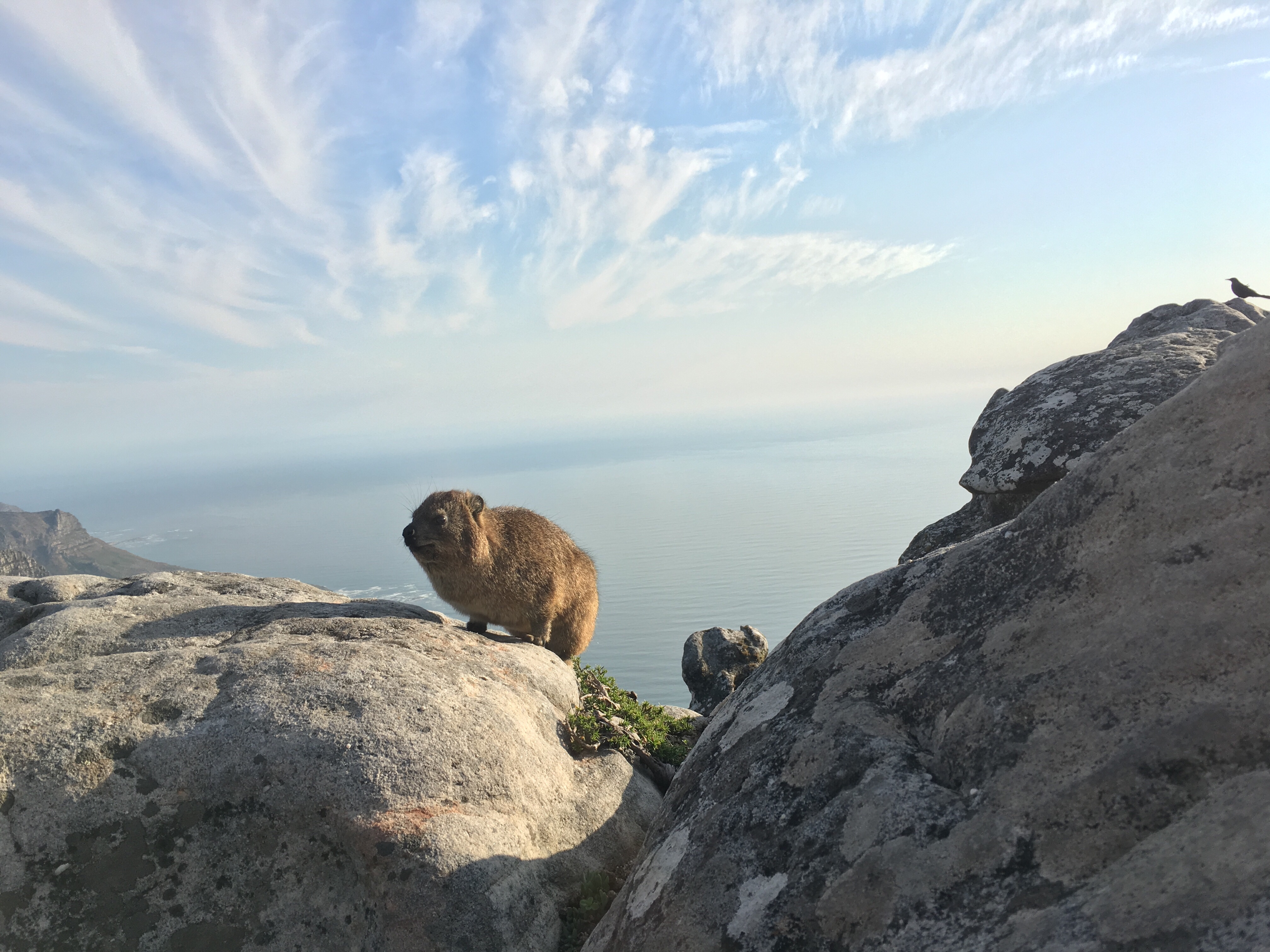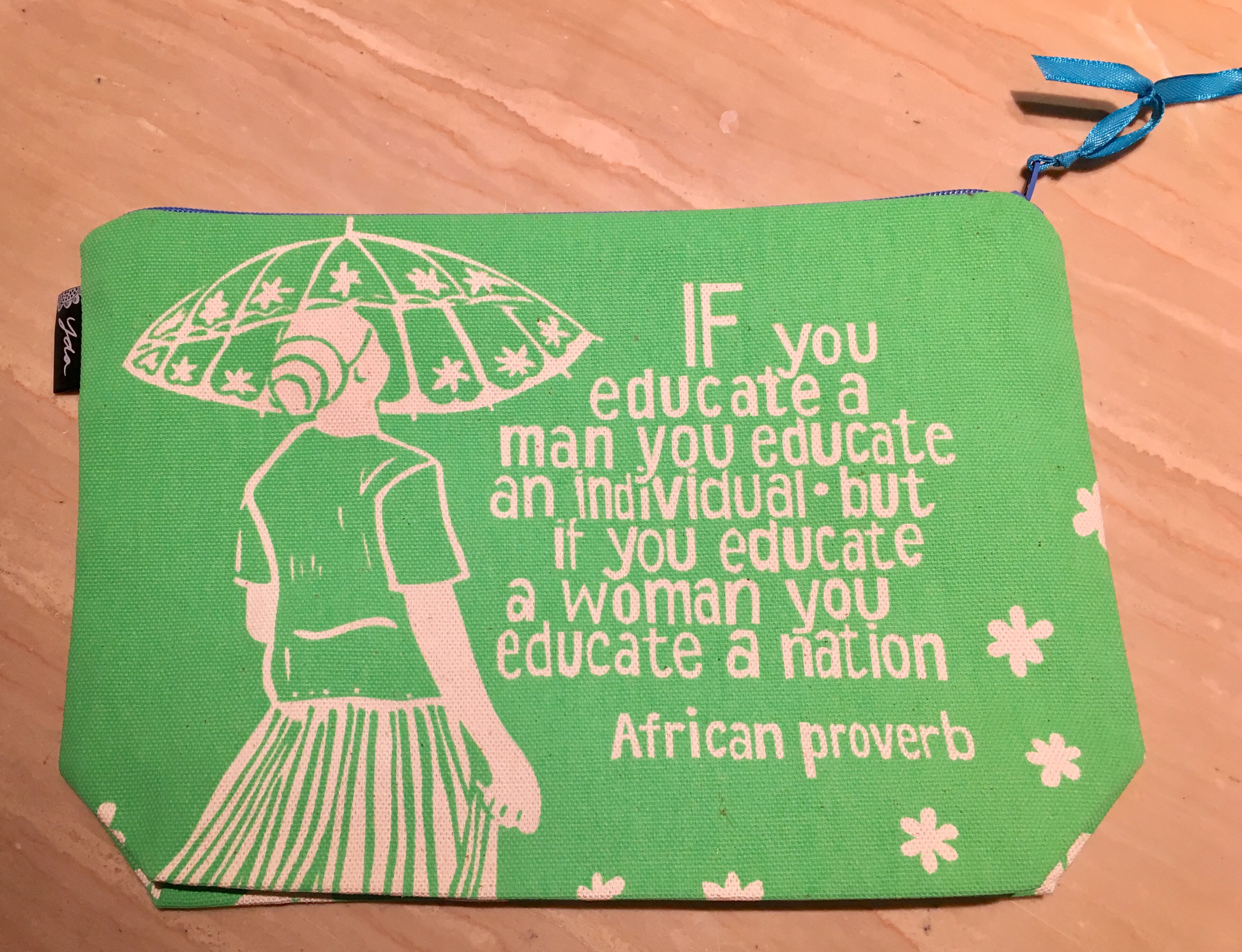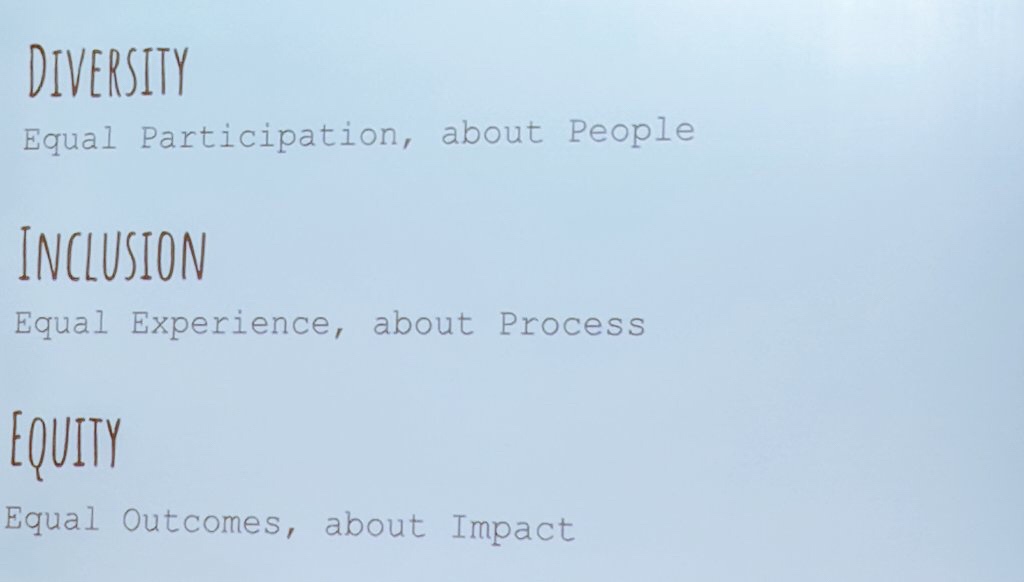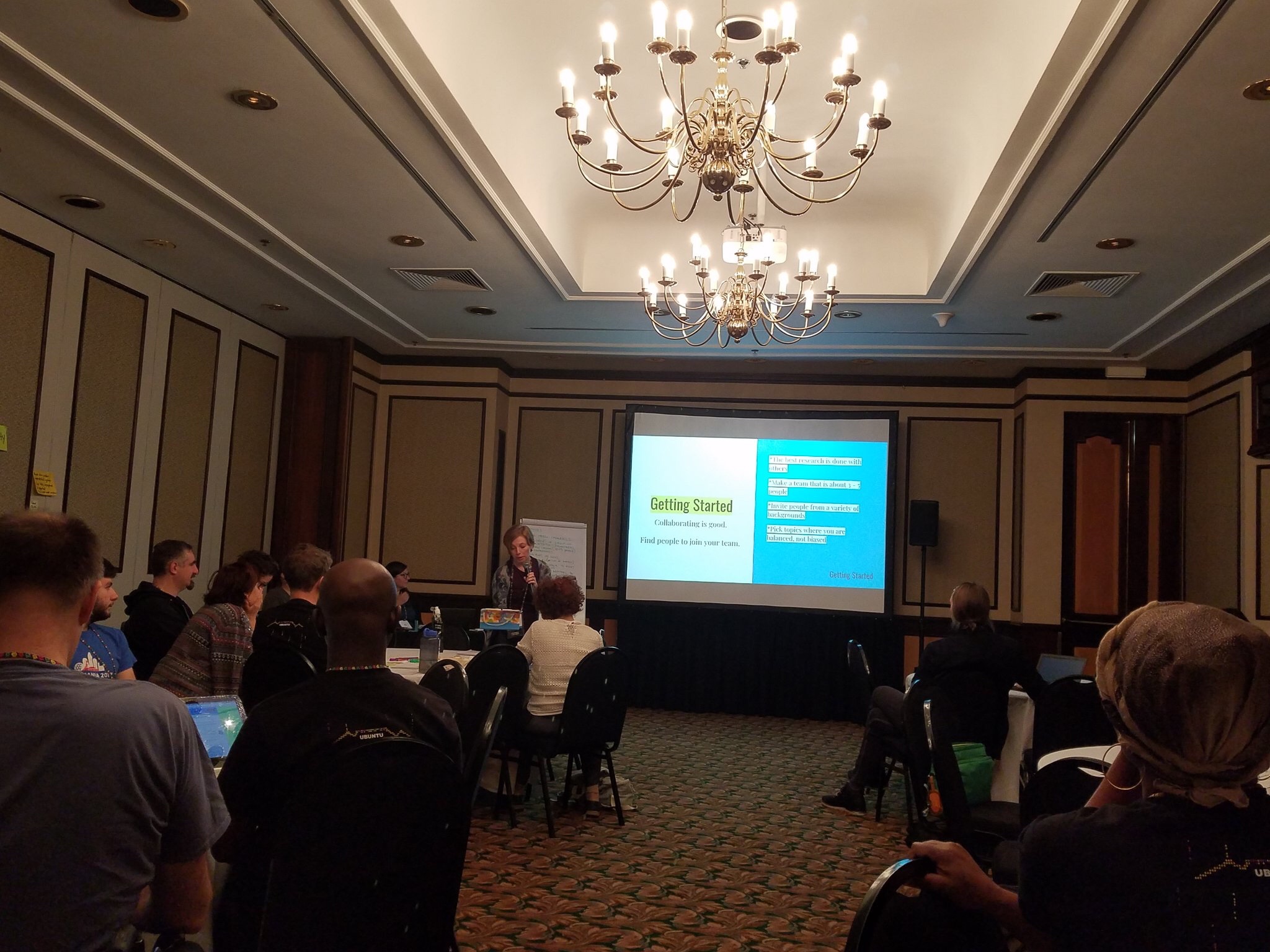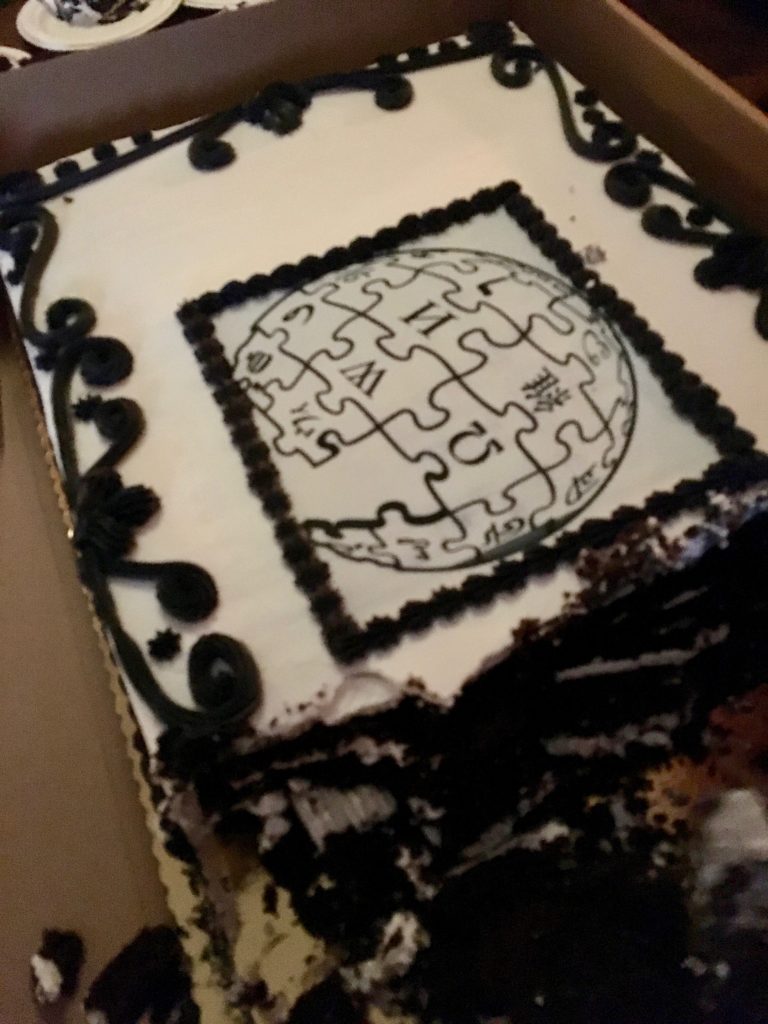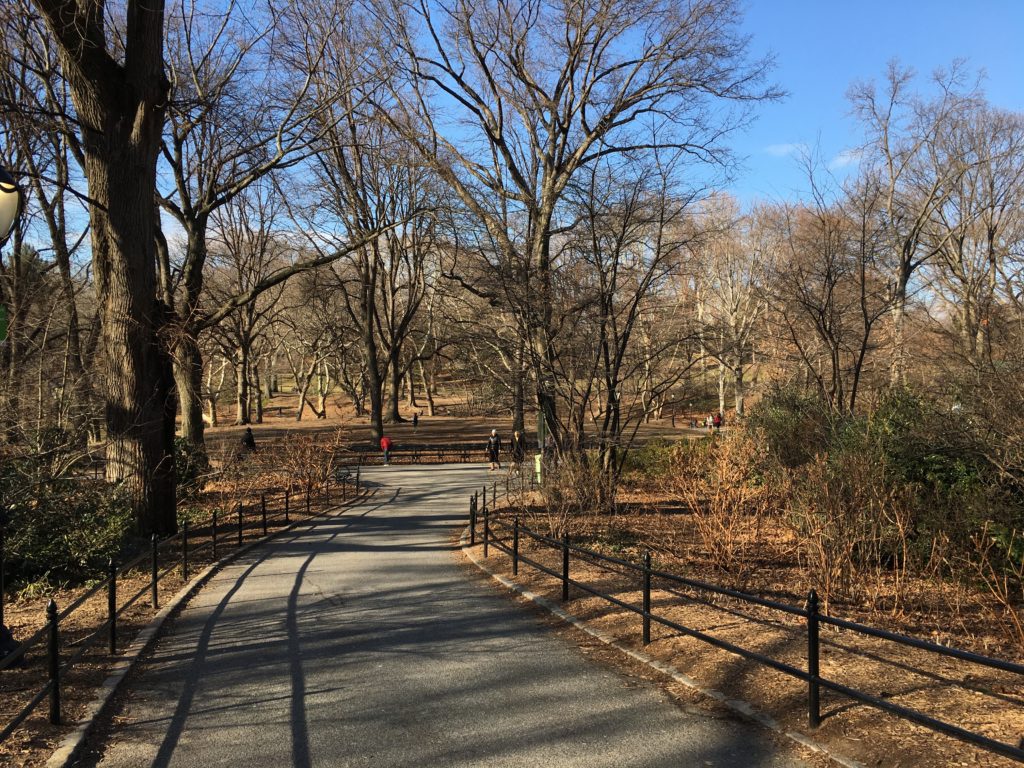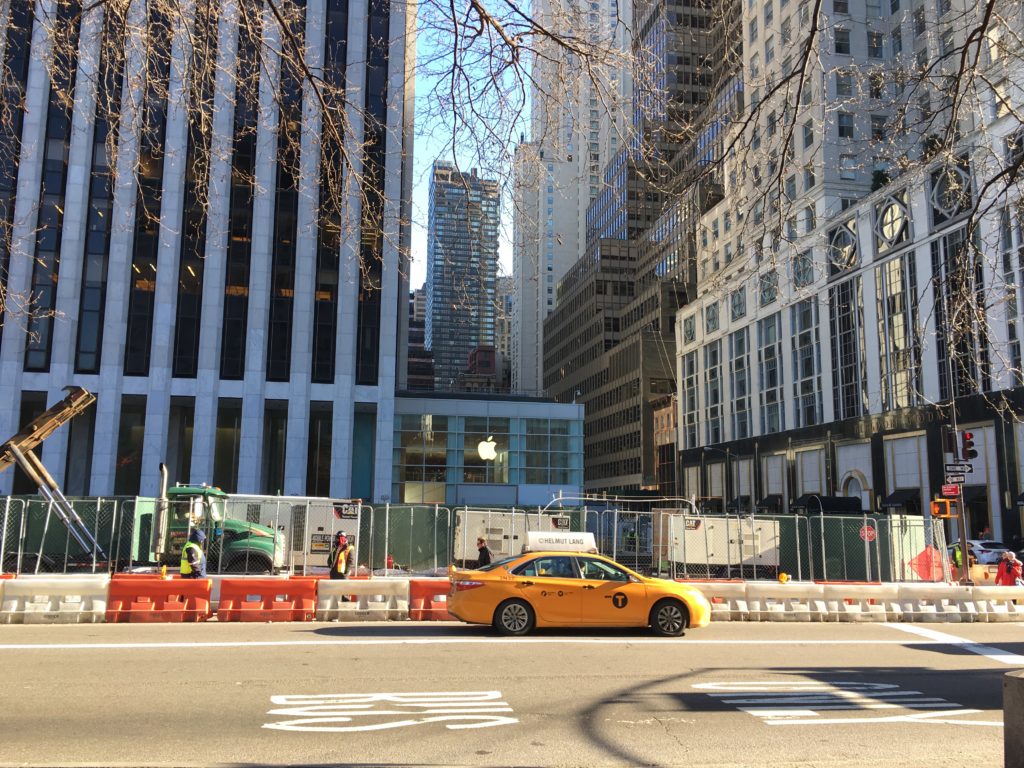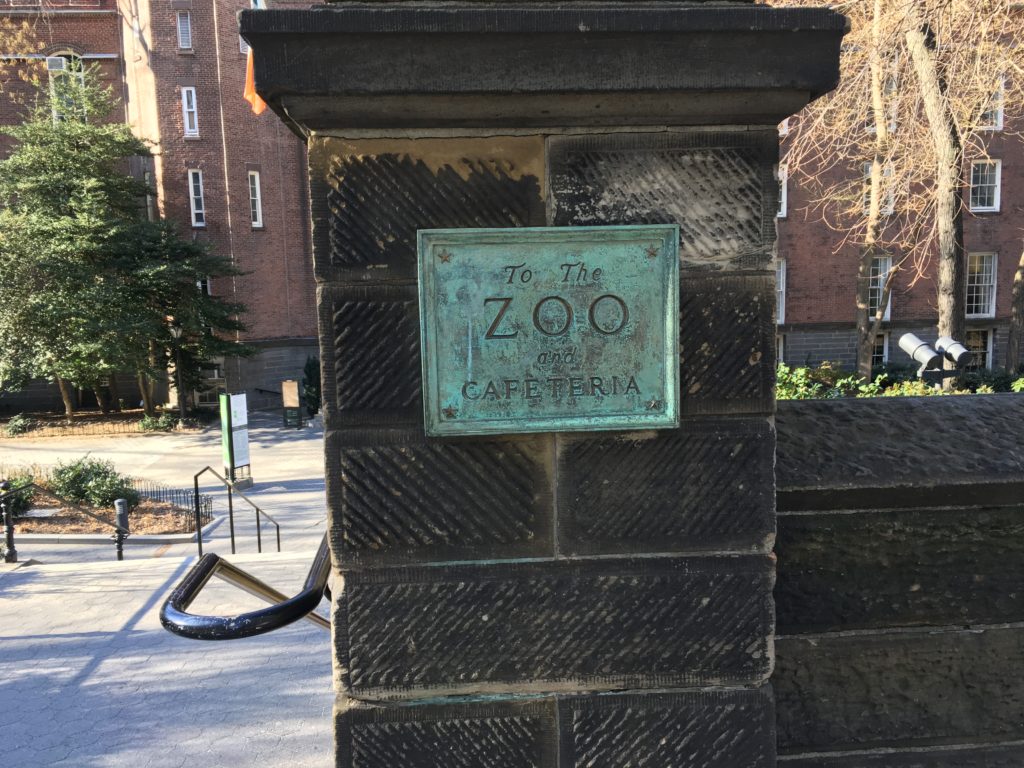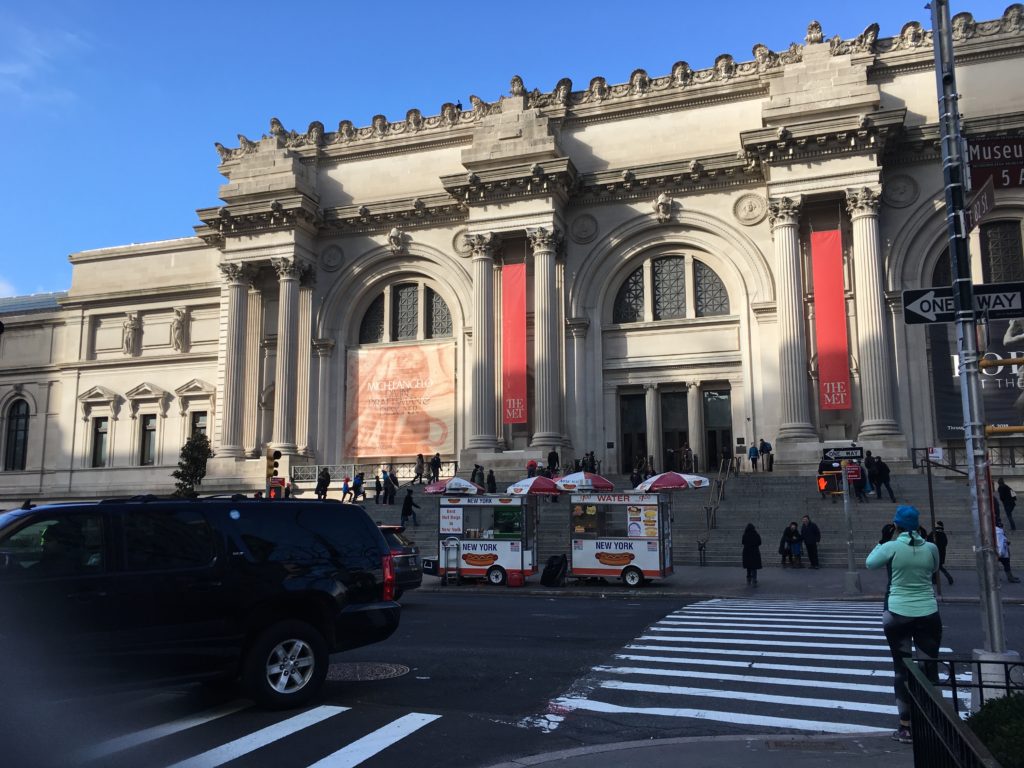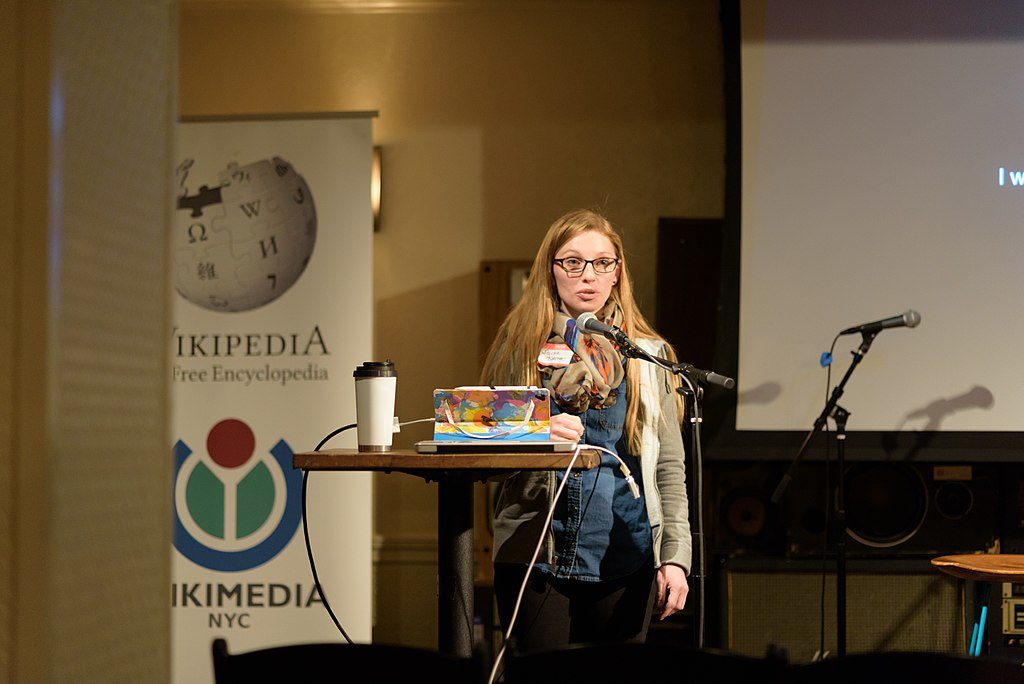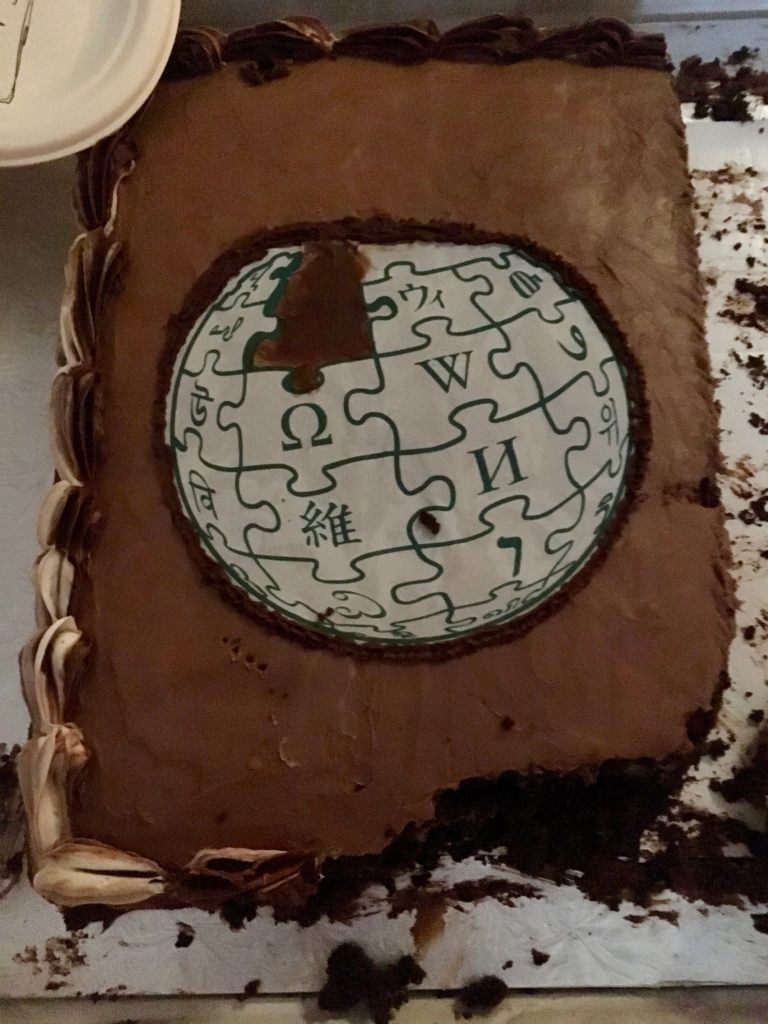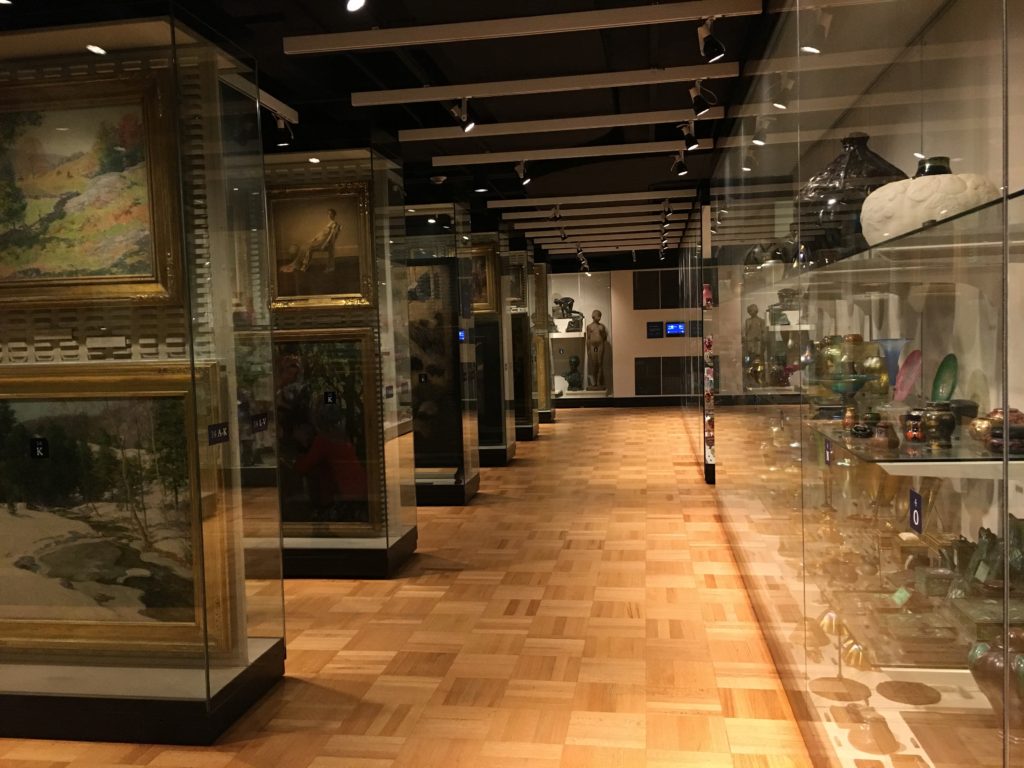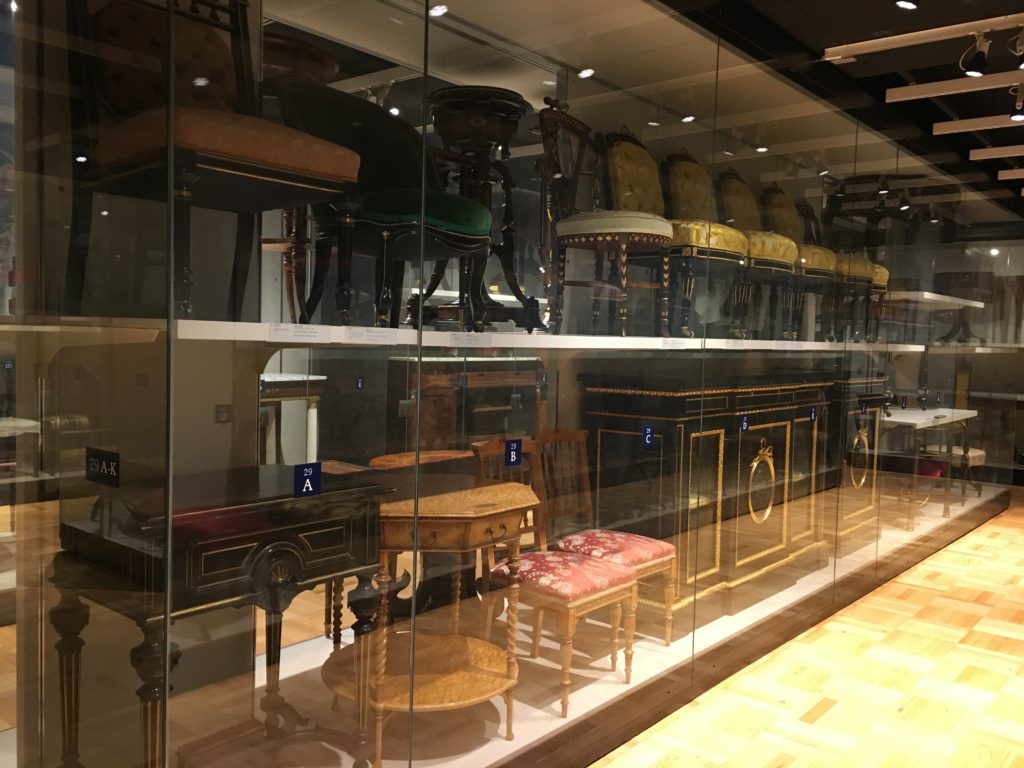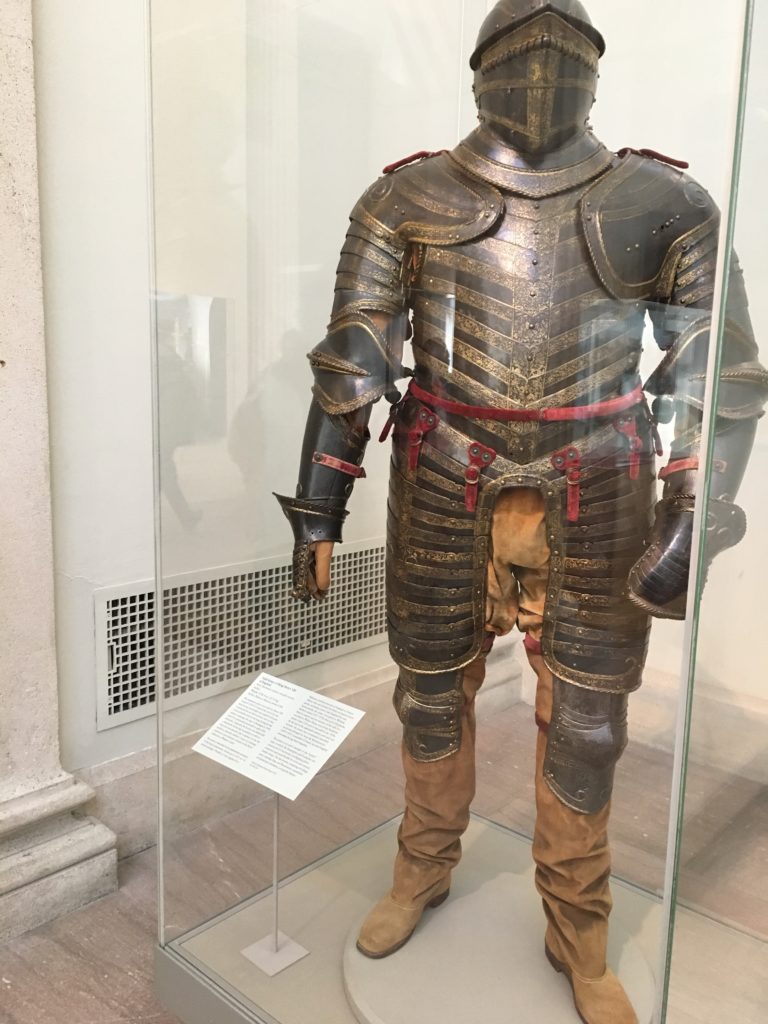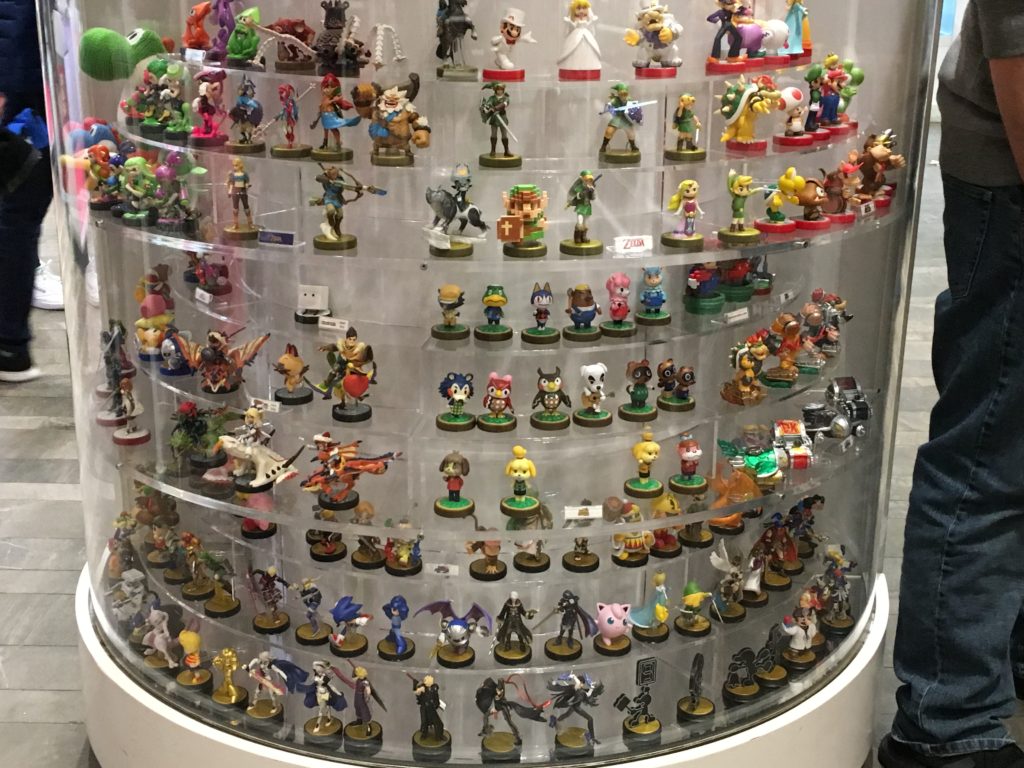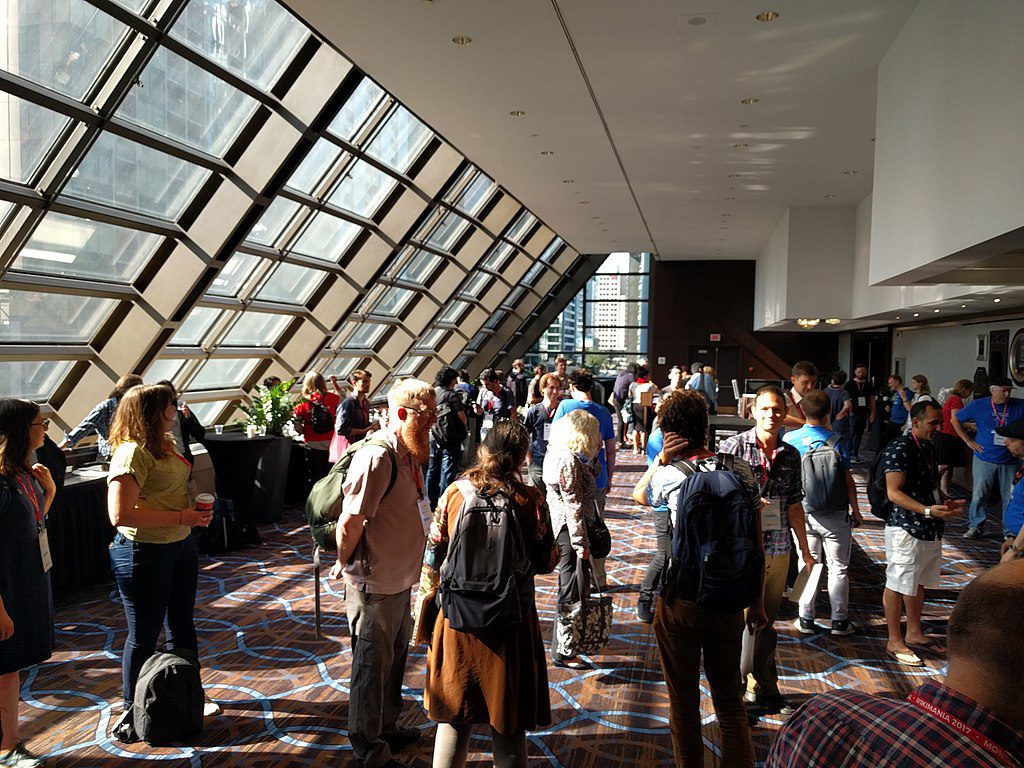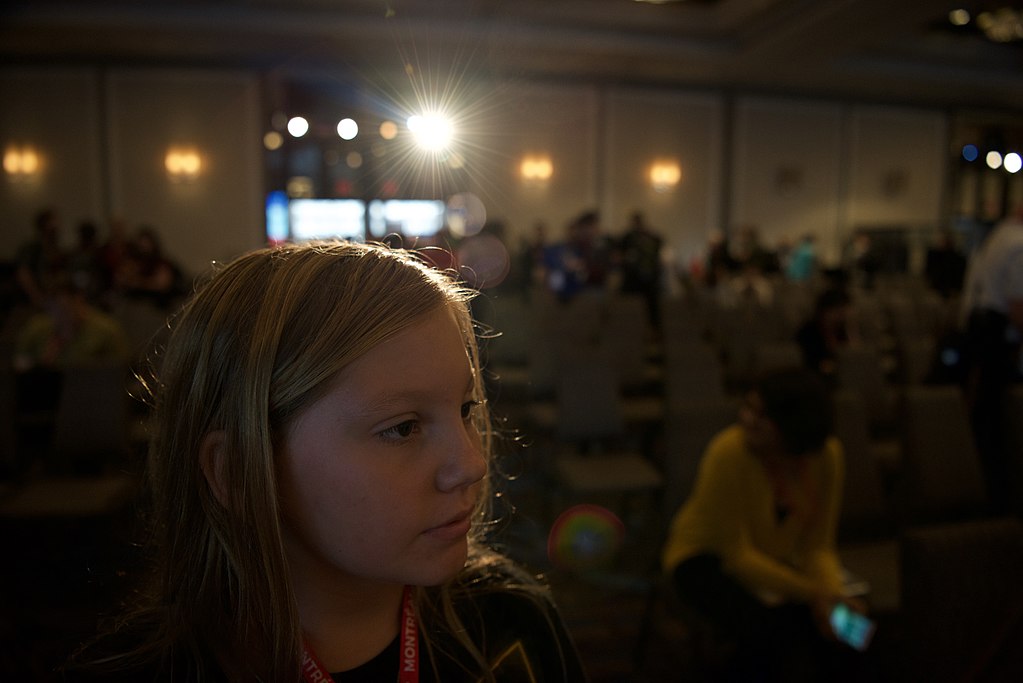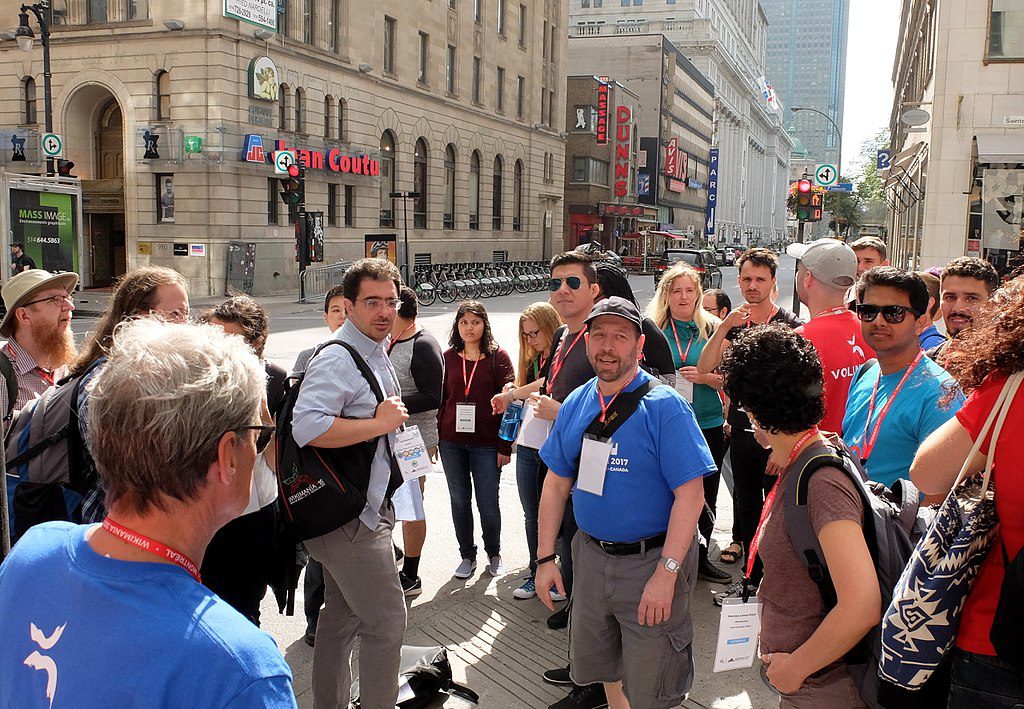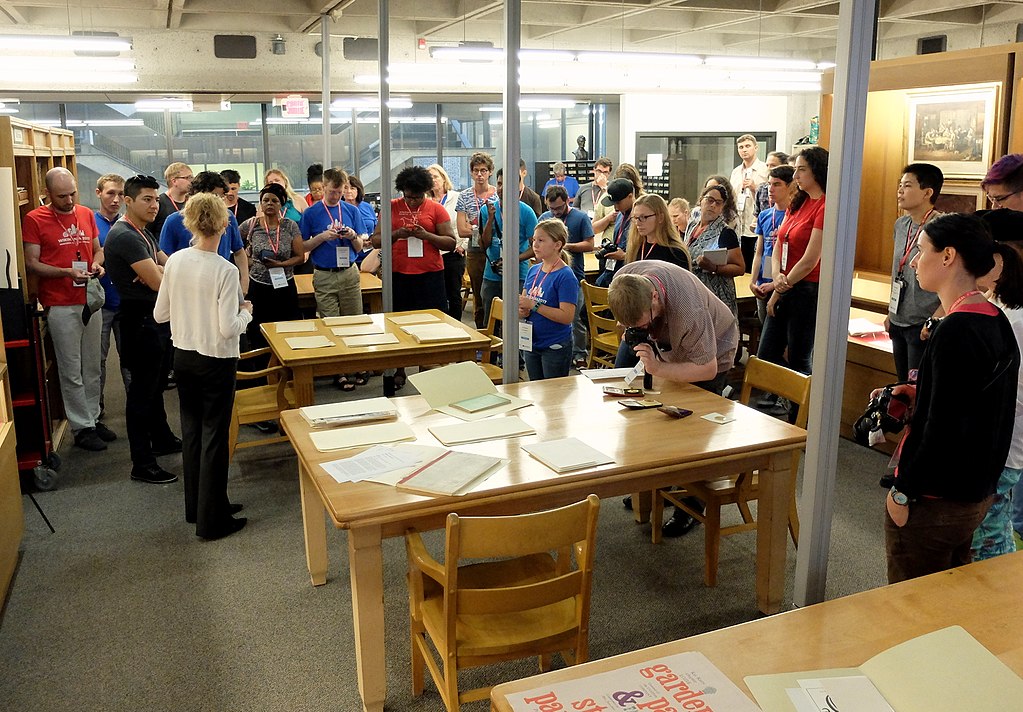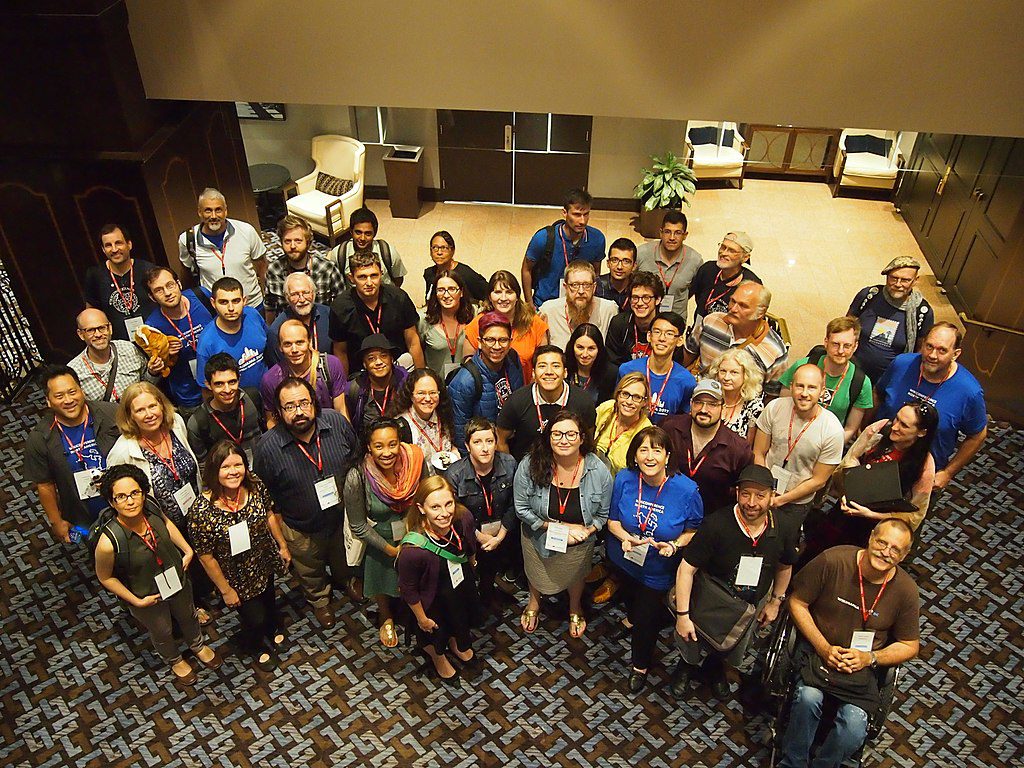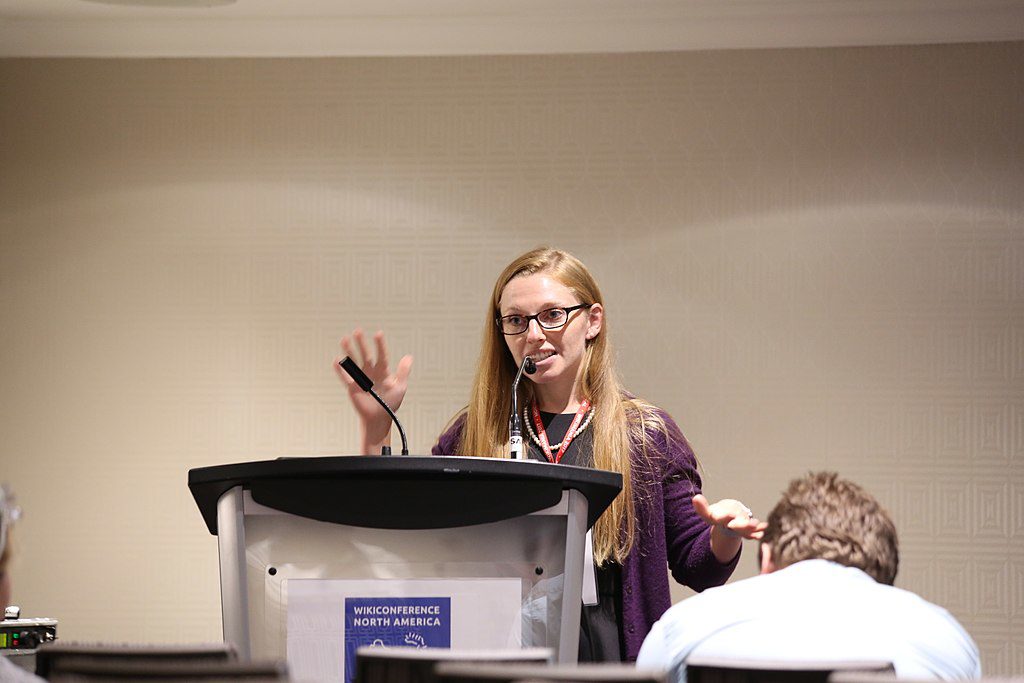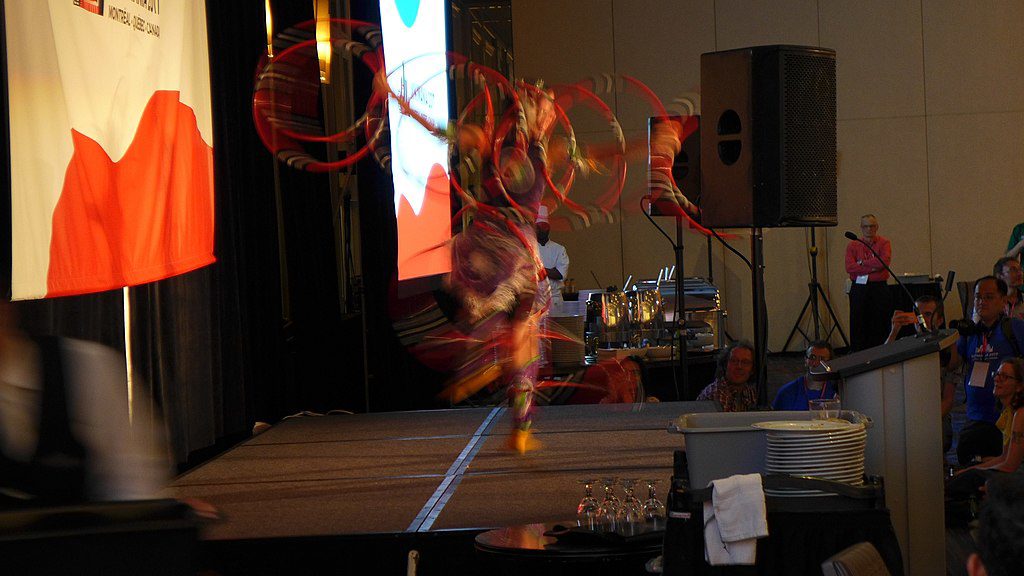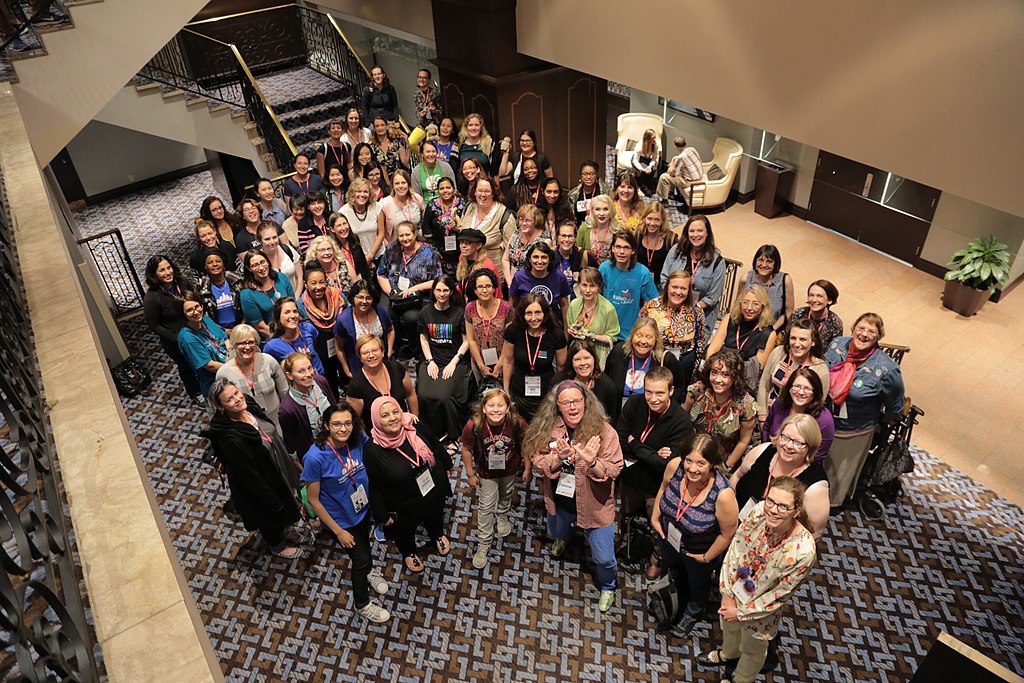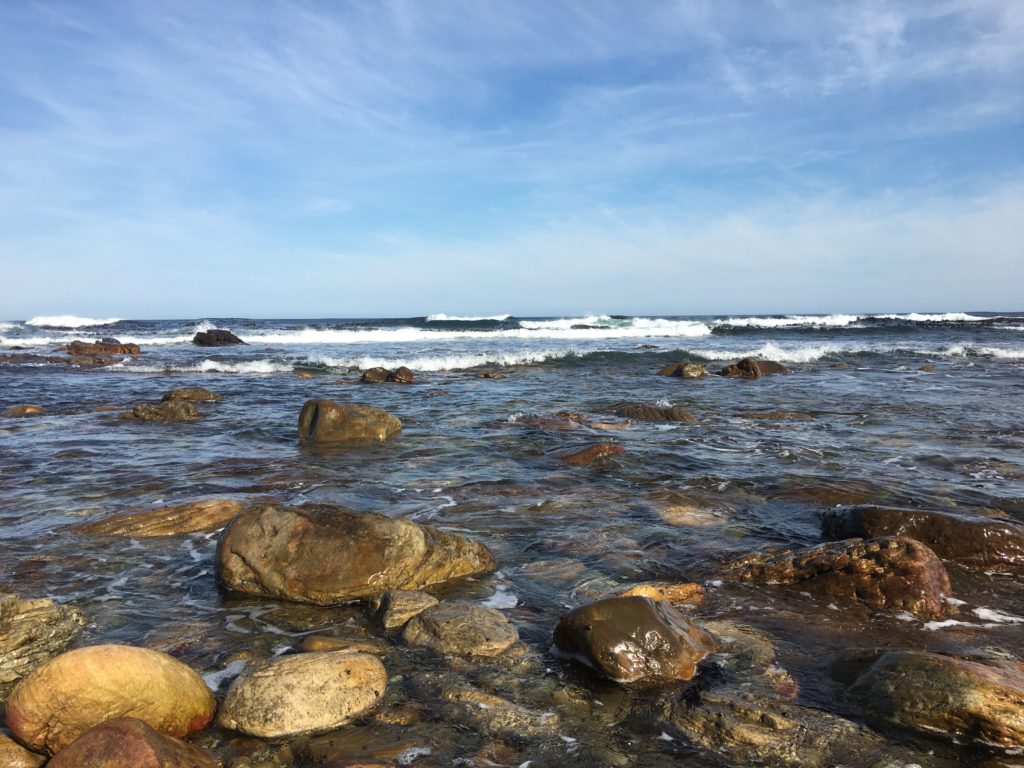
A couple weeks ago, I started an adventure I never imagined I would. I traveled to Cape Town, South Africa to attend Wikimania 2018. Last month I posted my reflection on Learning Days at Wikimania 2018, so if you haven’t read that, start there and then come back to read my reflection on Wikimania 2018.
To begin Wikimania 2018, the planning committee organized an opening party at Two Oceans Aquarium. I was so excited! I love ocean life, so this made the night amazing from the start. While there I got to meet some new wiki friends and end the night with my oldest of wiki friends. I love that no matter how long it has been since we have seen each other, we start back up like it was no time at all. This community is really what makes all wiki things go – from creation to connection.
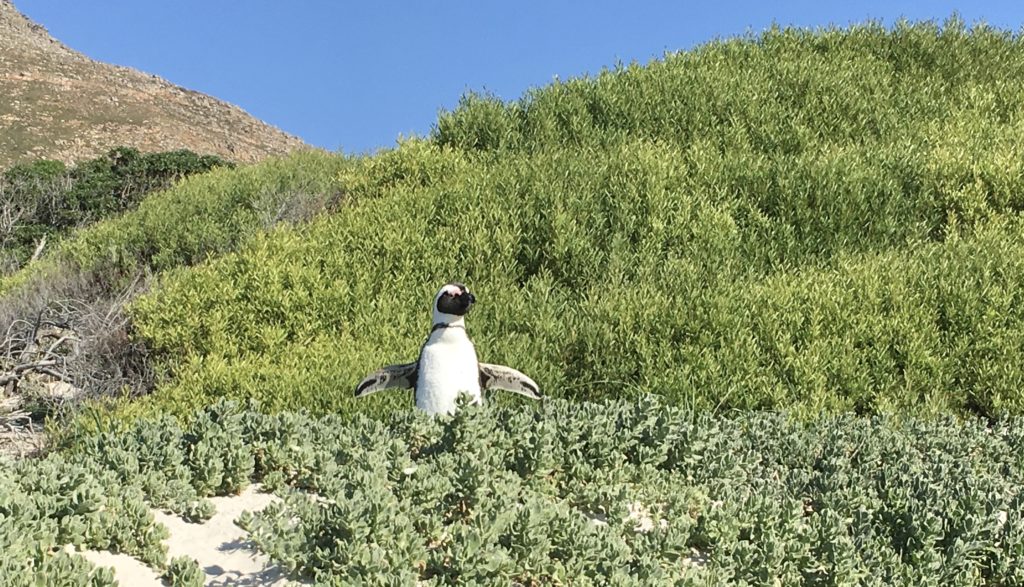
While at Wikimania, there was so much to learn from everyone who came. I realized at Wikimania 2017 how open people were with their knowledge, a stark change from the academic conferences I had attended. This only expanded when I attended the Wikimedia Diversity Conference. There I learned so much from broader parts of the world and truly understood in sharp relief how Western-centric our focus is. This experience and observations I made during Learning Days convinced me to make a commitment. I chose during Wikimania 2018 to listen and not take space where other people’s voices should be heard. I am glad I did, because I learned so much from communities and people I had not otherwise met at other Wikimedia events.
The people I met told me stories about what they are doing in their community, what they have accomplished and what their challenges are. There were successes of getting information literacy on the national and college curriculum, and there were challenges of the very real and mortal risks of free speech. These are people in their own countries and communities doing amazing things. Many of the presentations echoed my strong beliefs about the needs of the free knowledge movement to focus more on empowering communities doing the work.
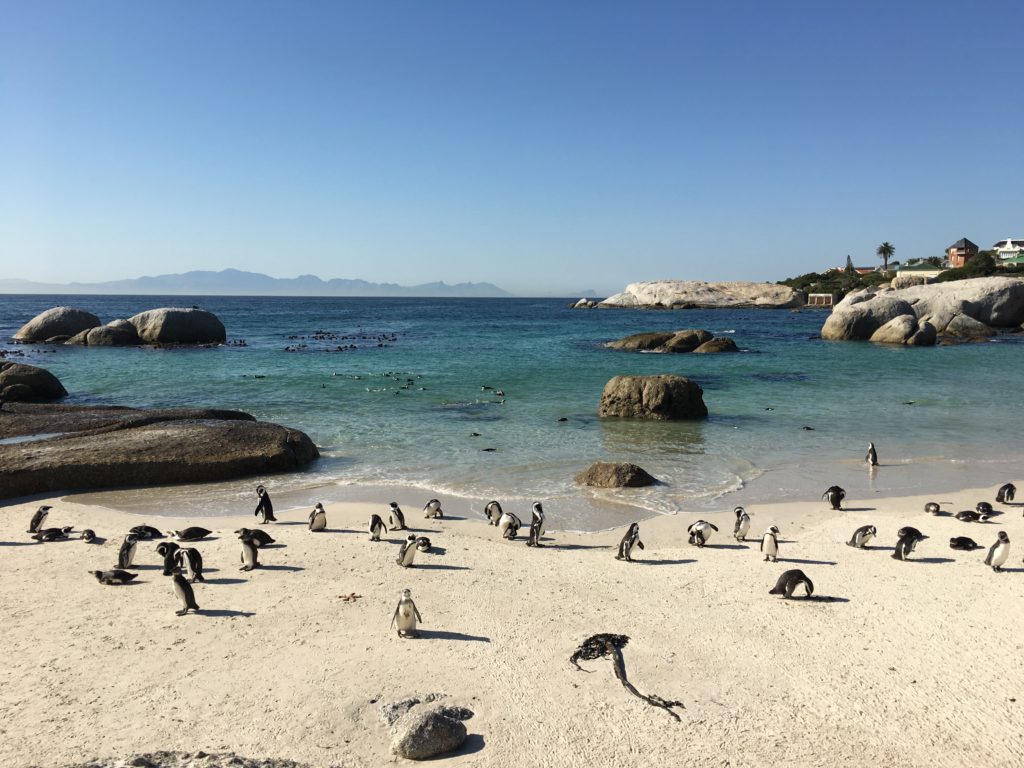
Below I’ll summarize the information from my pictures, notes and tweets that I took during the sessions as well as tidbits of information about the week:
Gaps in Global GLAM Capacity
This session was a panel of people working to collect critical information digitally before it is destroyed by age or other natural factors. They discussed the issues of building relationships and convincing people this is something that is culturally critical.
Centering Knowledge from the Margins
Whose Knowledge hosted a panel of organizers, scholars and allies to discuss knowledge and privilege. Some quotes I have from that session are:
On Wikipedia a lot of people think they’re experts in a lot of different areas, even though they’re not.
Having to create a handle that sounds like a white European man to avoid cultural oppression is not tech equity.
Online is a space we inhabit now. I want people who search for the key words ‘Native American’ to find something more than just statistics about alcoholism.
If you don’t have information about your community, you erode the sense of belonging to that community.
Many of us had to start from scratch. One hundred new editors and 100 articles may seem small, but when you consider the level of illiteracy that we are subject to, these numbers are huge.
We are coming to a conversation about tech equity with immense disparity. We are not on equal footing as the oppressor, which puts us in a disadvantage in this dialogue.
Now that we’re at the table, how are we going to disrupt the whole game?
The act of telling the truth is an act of freedom, but it’s also an act of great risk.
The process of updating and correcting knowledge about your community online often requires you to engage with your oppressor.
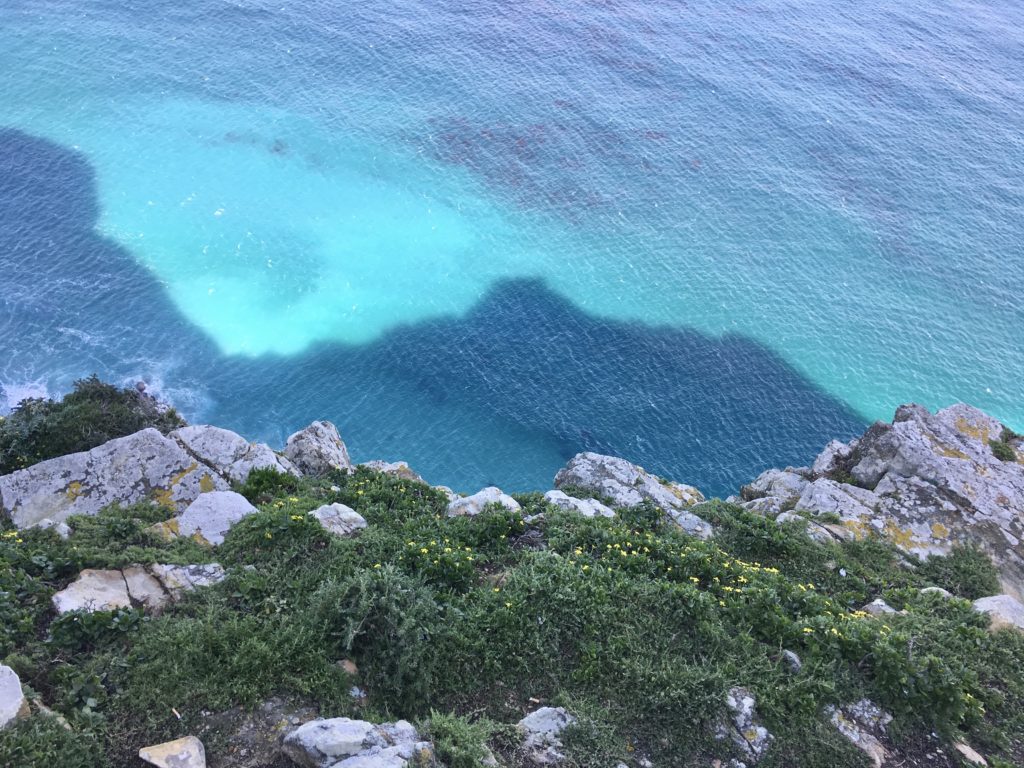
Creating Knowledge Equity and Spatial Justice on Wikipedia
The first plenary session was a presentation by researcher and data scientist, Dr. Martin Dittus. This session was recorded so do go watch his presentation. I am going to post some pictures I snapped of his slides.
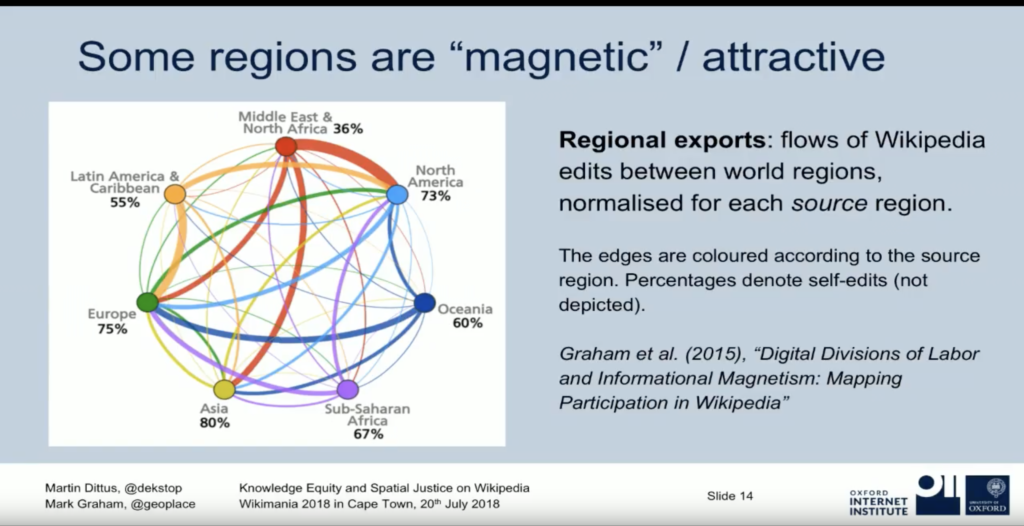
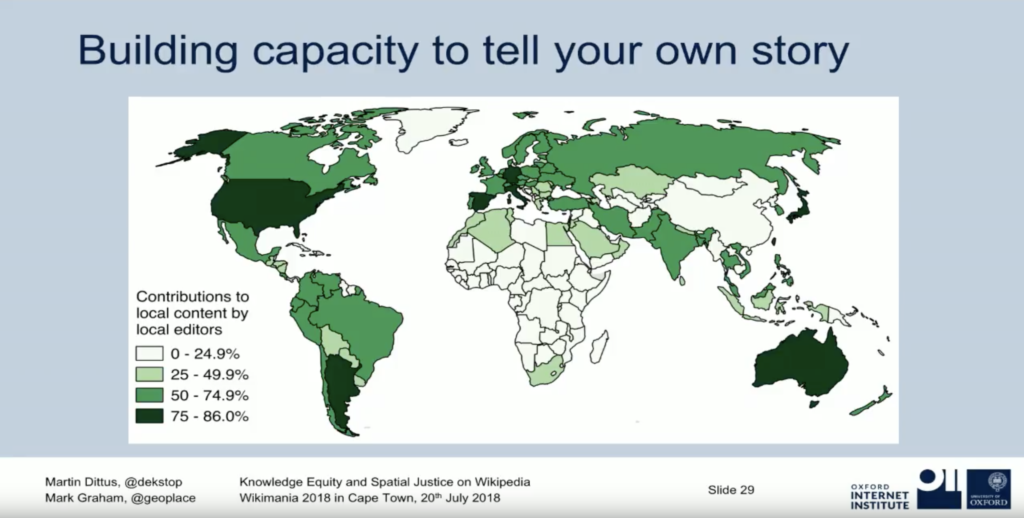
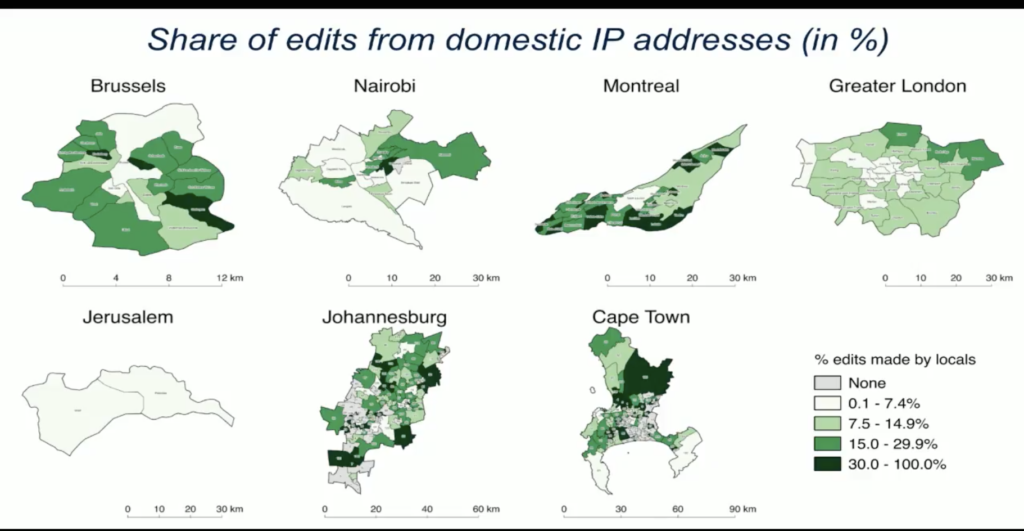
This research proves what many of us already felt. He illustrated how knowledge geography is a huge part of Wikipedia. He compared the region of the knowledge contributor to the region about which they were writing. Culture is an American export. We also feel like we can accurately assess and document any culture with authority. He also said very accurately,
In certain parts of the world it may cost more than your monthly income to go online.
What is happening online right now digitally is of great importance to those of us in the physical world.
Information geography helps us to understand how we build a narrate of the world. Our devices shape how we understand the world, and how we act there, too. The maps has become the territory: the digital is the world now.
After the plenary, I skipped out and headed to dinner with Chris and some of his colleagues. We went to Addis in Cape, an Ethiopian restaurant. This dinner was amazing. I am genuinely sorry you weren’t there. We ate it all – from delicious ciders to injera made from teff to azifa and ended the night with a coffee ceremony.
State of Research in Knowledge Gaps and State of Wikimedia Research
These sessions (1, 2) presented research about all things wiki and where we should go next. There has been a lot on gaps in the past year. There are data sets online for those of you looking deeper into gaps. Check out Research on meta, get involved, and present at OpenSym.
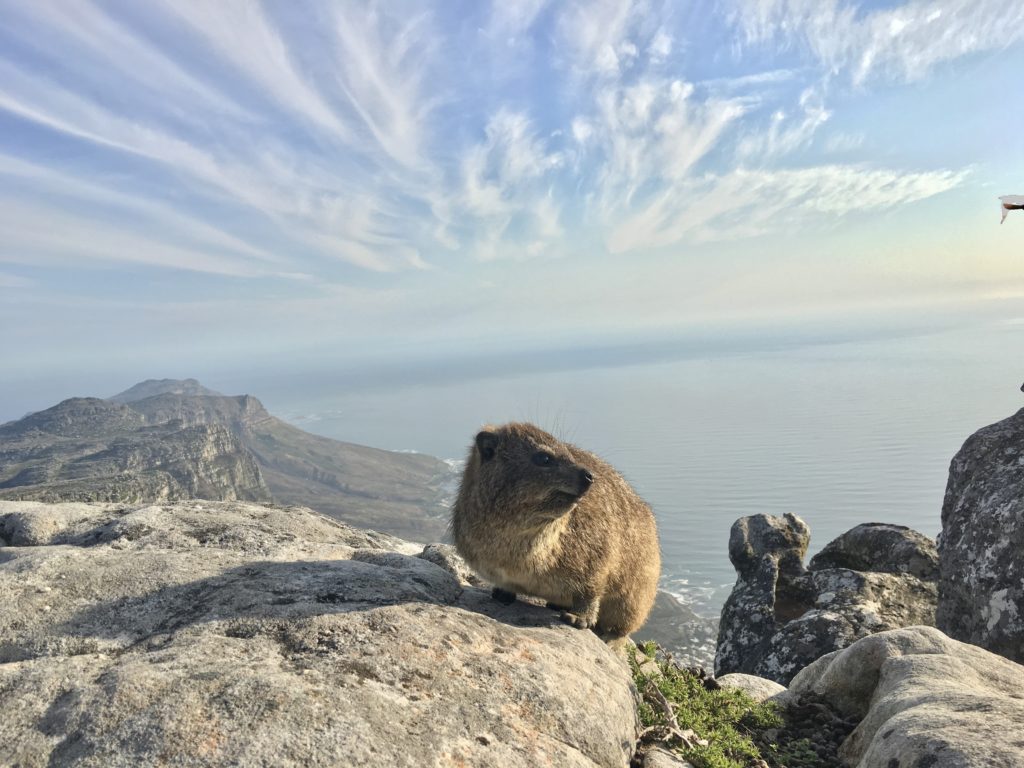
After the research sessions, Chris and I decided to go to Table Mountain. There we hiked around for about 2 hours taking pictures of amazing views and adorable little Dassies.
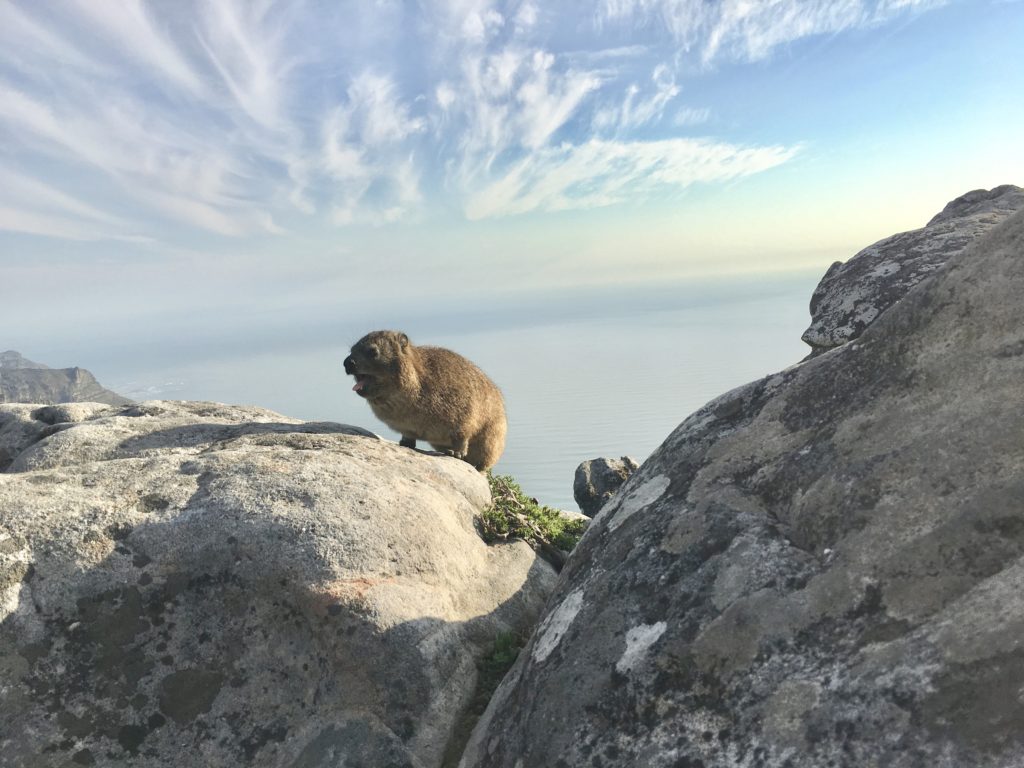
After the mountain trip, we went to the mall to shop for some new luggage. Between St. Louis and Cape Town, Delta destroyed my luggage, and I decided a suitcase wrapped in duct tape might look a bit shady to airport security. I am, however, very grateful that received my bag with the contents still inside. Sadly some of my friends didn’t receive their bags or the contents at all.
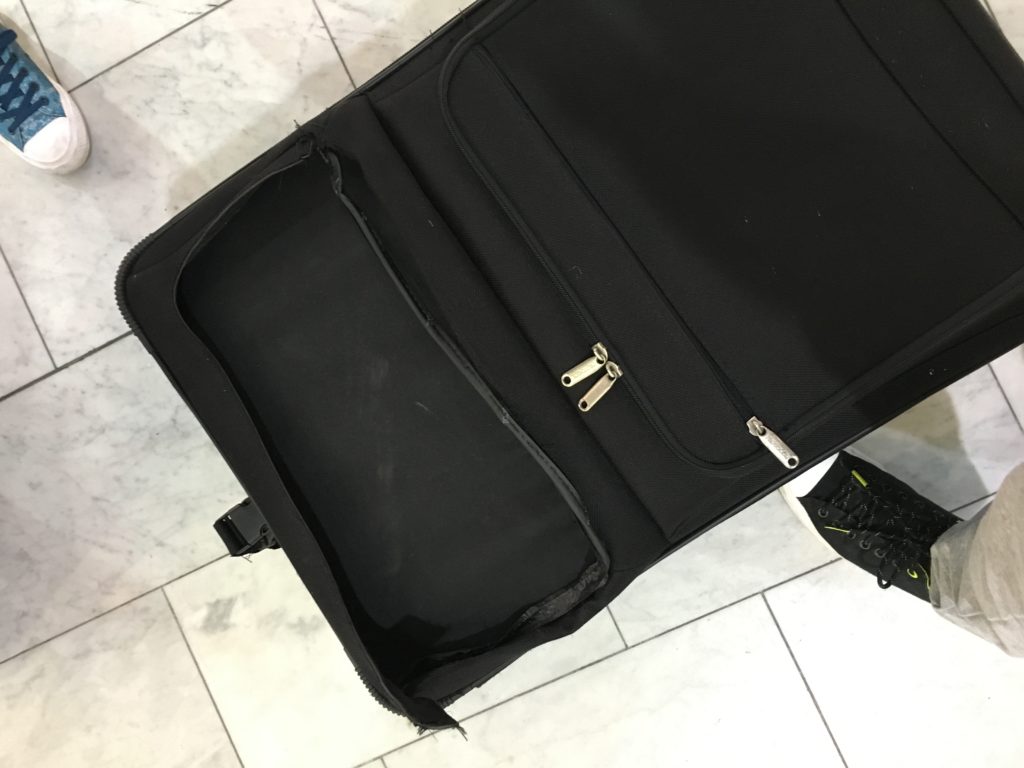
Besides adulting and shopping for luggage, we bought some gifts and ate dinner right on the water. Living in the Midwestern United States, the seafood I am able to eat is always frozen. Every dinner with seafood in Cape Town was delicious. I even got to try a local fish, Kingklip.
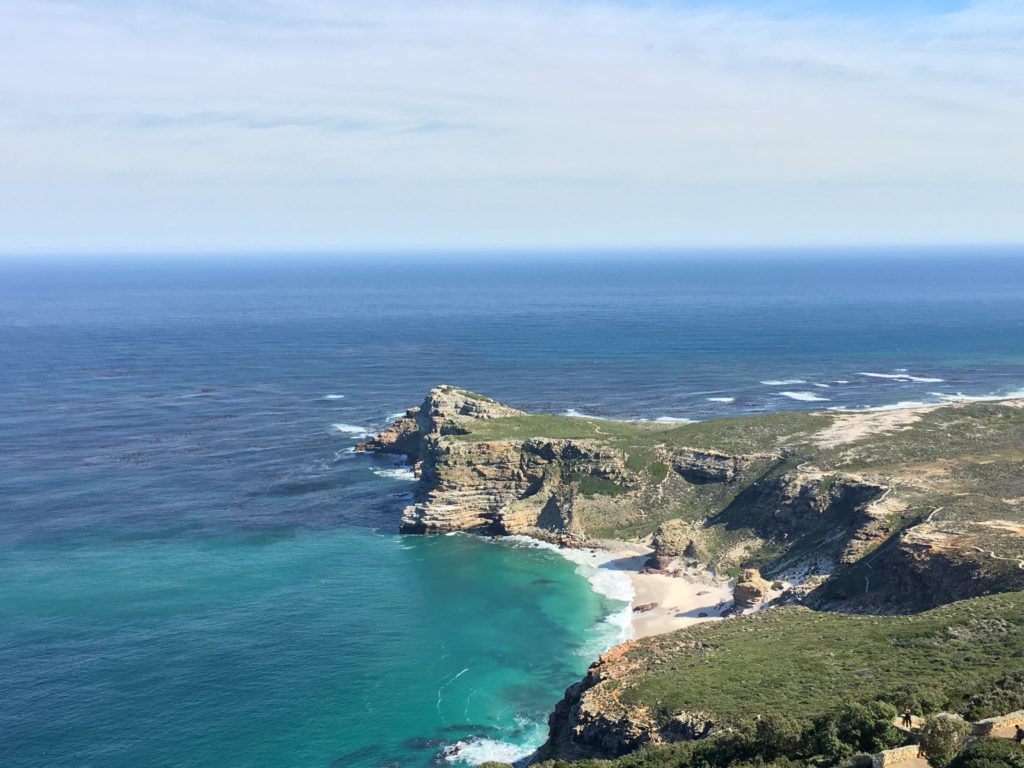
Rounding out a wonderful week, the following morning I attended one of my favorite plenary sessions:
The Dangers of Supremely White Data and The Coded Gaze by Joy Buolamwini Do yourself a huge favor and google her. She’s an incredible mind who is changing the world and everyone can learn great things from her. I appreciated Joy speaking to the crowd about how we all must go deeper than the studies and look at the data. We need to ask, “What data are algorithms being trained with? Who is doing this study? How does it work in real world settings?”
I absolutely love how she answered the following question from the audience, “How do you make bias easier for teams to identify?” She replied simply, “Employ diverse teams.” Yes. Yes! YES!
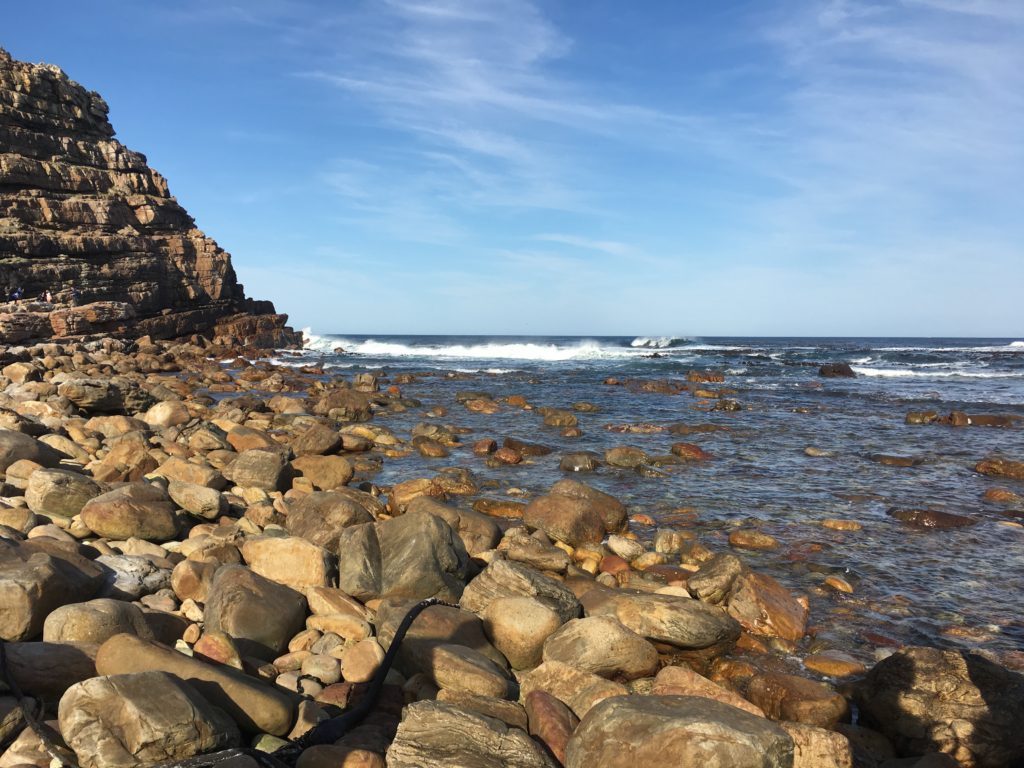
Following the plenary session, I attended sessions focusing on the gender gap. All these sessions have video recordings, and I encourage you to go watch the videos, read more, and do something about the gender gap:
Research on gender gap in Wikipedia: What do we know so far?
Women leading the way toward gender equity
Building new bridges to close the Wikimedia gendergap
What can we learn from the Feminist movement for knowledge equity?
The first and last sessions on the list actually inspired this post from my husband.
My takeaways from the gender gap sessions are: most if not all gender gap research is completed by the Wikimedia Foundation. Women don’t respond to surveys as often as men do. Women don’t get support from their community when harassed and threatened by male editors. Words convey subtle bias. The quantity of women in leadership roles in the Wikimedia movement is larger than anticipated given the population gender distribution. I personally wonder about how the leaders are being accepted in the community in their leadership roles beyond just being referred to as leaders.
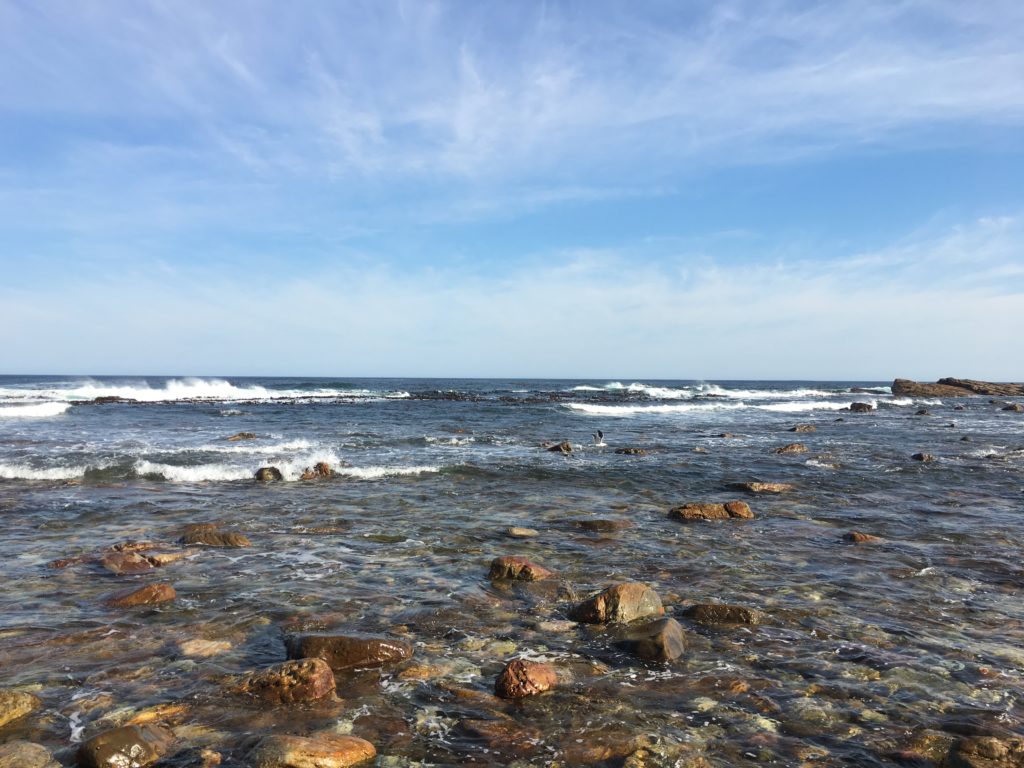
After the gender gap sessions, I dipped into Beyond the meat grinder: building better new editor experiences through research and dialogue to support some fellow qualitative researchers. The big take away from this session was more needs to be done to support communities in their own language and culture.
After a morning full of learning and discussion, I met up with some awesome women. We were planning on attending the Wiki Women’s Lunch, but we ended up having a good chat right outside the room! I always meet the best people at wiki events.
The closing party was amazing for what I saw, as I only stayed for a small portion. I hear it was really incredible. The whole planning committee really went out of their way to make Wikimania 2018 a stellar event. I was so honored to be able to attend this Wikimania and be able to live such an experience. I hope I can meet all my new wiki friends again very soon.
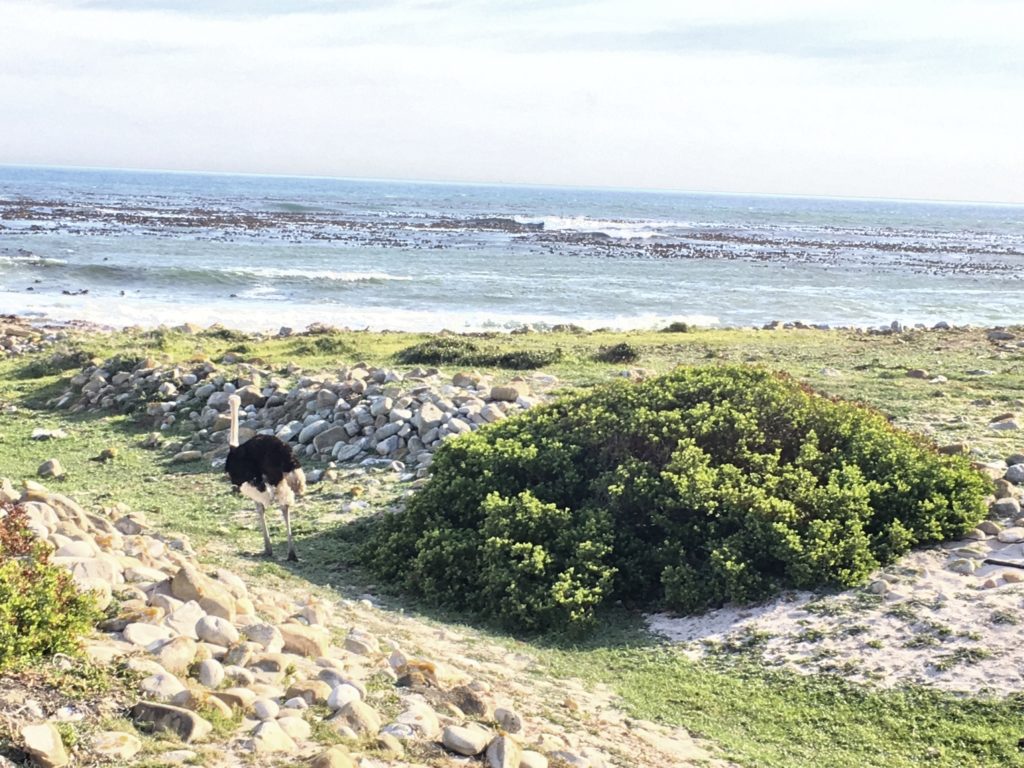
The Big Takeaway
For those of you who are looking for my overall takeaway from this whole conference, it is listening. I am referring to the listening you do with your best self and from your soul. Listen because you want to hear that other person. Listen because you want to honor their experience. Listen because you want to understand what it is to be where they are.
If we are going to go anywhere in this world, it is together. We cannot put one before the other anymore. It is not an “eat or be eaten” world. It’s collaborative, for “two heads are better than one” really is true. To create something truly representative of the world, we need to work together. This may mean one person talks less in order to serve the goal of equity. In the same vein, it is cultural appropriation of the worst kind to take a piece of a community’s culture and write about it how it makes sense from an outsider’s perspective. No one can know everything, but don’t we want to have the closest truths out there for the knowledge seekers?
